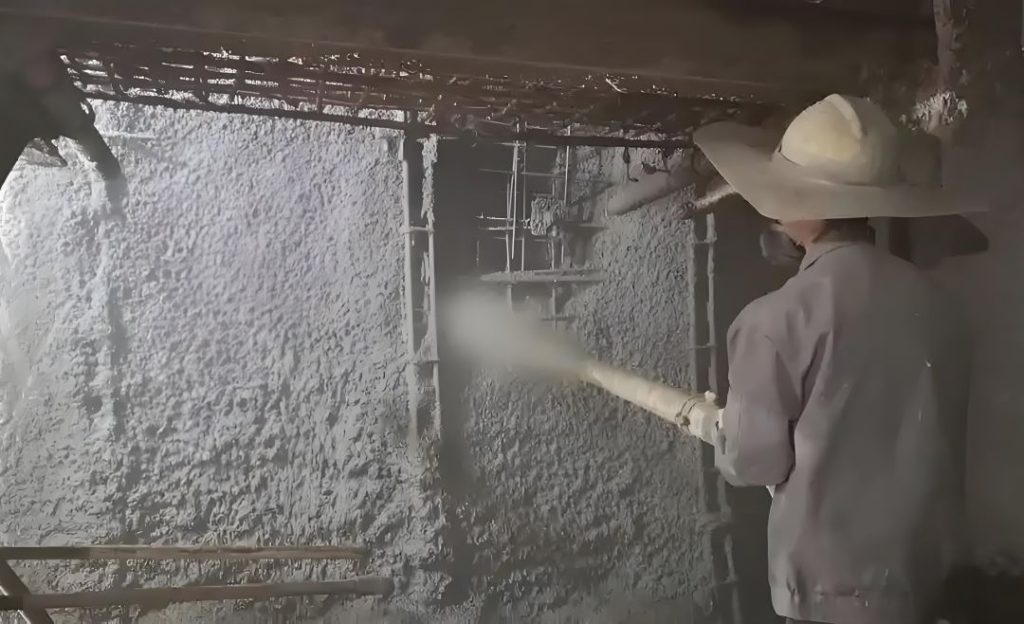Why do you have to spray gunite? Gunite, a mixture of cement, sand, and water, is applied through a high-pressure hose in a sprayed process rather than being poured or laid. Spraying gunite offers several advantages that make it the preferred method for certain construction projects, especially for irregularly shaped or reinforced surfaces.

Here’s why it’s sprayed:
1. Adherence to Irregular Shapes
- Gunite can be applied to surfaces with complex shapes or contours, such as swimming pools, tunnels, and retaining walls, where traditional pouring methods might not work as efficiently.
2. High-Pressure Application for Compactness
- The high-pressure spray compacts the material as it is applied, increasing its density and strength. This helps create a strong, durable surface that resists cracking and wear.
3. Versatility
- Spraying allows for easier coverage of vertical and overhead surfaces, which would be challenging to achieve using other methods like pouring.
4. Reinforcement Integration
- Gunite is typically applied over a framework of rebar or mesh. The spraying process ensures the material penetrates and encases the reinforcement thoroughly, enhancing structural integrity.
5. Control of Thickness
- The application method allows precise control over the thickness of the material, ensuring an even and consistent layer.
6. Reduced Need for Formwork
- Unlike traditional concrete, gunite doesn’t require extensive formwork (temporary molds) to hold its shape during application. This reduces construction time and material costs.
7. Speed and Efficiency
- The spray application is faster than manual placement and ensures that material is distributed uniformly over the area being treated.
Is Gunite Better Than Concrete?
Whether gunite is "better" than concrete depends on the application:
Advantages of Gunite:
- Flexibility in Design: Works well for custom shapes like swimming pools, fountains, and free-form structures.
- Durability: Highly resistant to cracking due to its strong bond and dense application.
- Faster Application: Since it doesn’t require forms, construction can be quicker and more efficient.
- Water Resistance: Excellent for water-retaining structures like pools and tanks when properly cured and sealed.
Advantages of Regular Concrete:
- Cost-Effectiveness: Conventional concrete is generally cheaper for flat, large-scale projects like pavements and slabs.
- Ease of Application: Easier for simpler shapes that don’t require the precision or flexibility of gunite.
- Pre-Mixed Consistency: Concrete is mixed with water beforehand, making its application simpler in certain contexts.
When to Use Gunite:
- For intricate designs, vertical surfaces, or irregular shapes.
- In projects requiring high strength and durability, such as pools, retaining walls, or skate parks.
When to Use Concrete:
- For straightforward, flat, or large-scale projects like sidewalks, driveways, and foundations.




